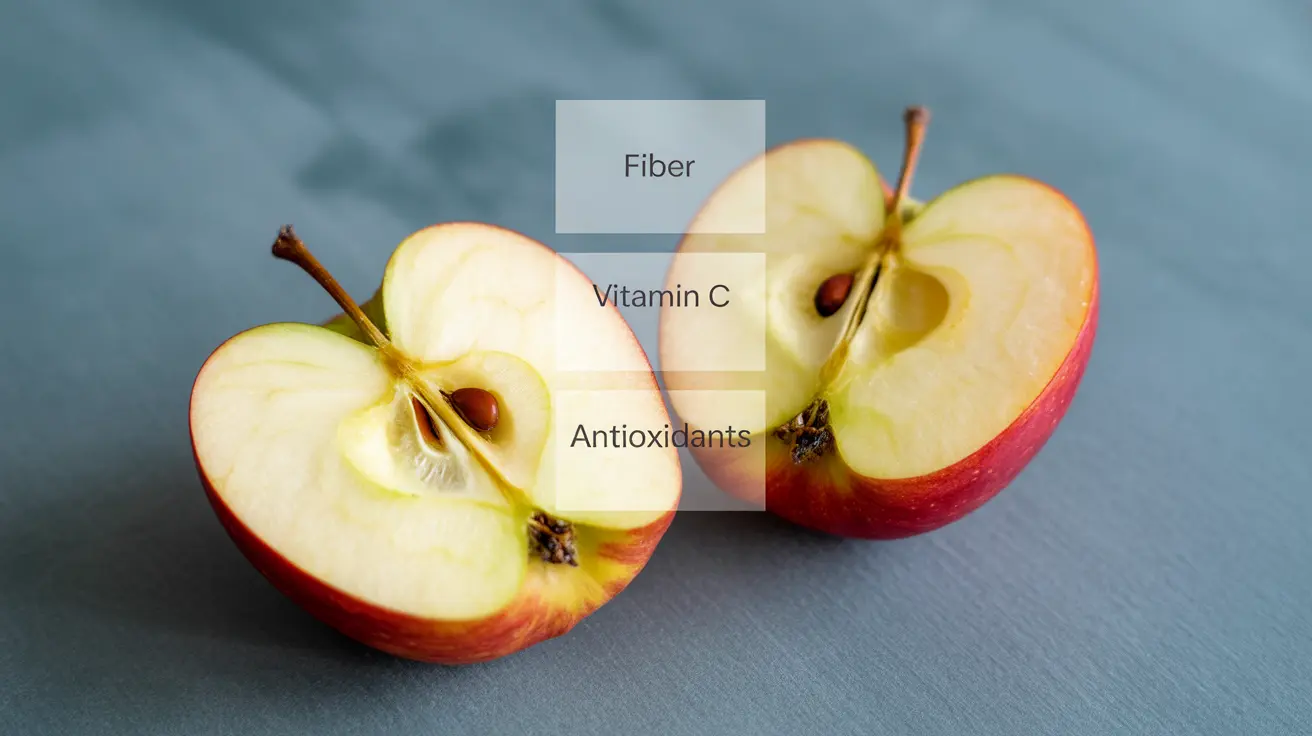The debate over whether to peel or not to peel apples has been a long-standing discussion in nutrition circles. Understanding the nutrient content of apple skin can help you make an informed decision about how to best enjoy this popular fruit. Research consistently shows that apple skin contains a concentrated source of beneficial compounds that contribute significantly to the fruit's overall nutritional value.
Let's explore the comprehensive nutritional profile of apple skin and understand why eating the whole apple, including its peel, might be your best choice for maximizing health benefits.
Nutritional Profile of Apple Skin
Apple skin is remarkably rich in nutrients, containing a higher concentration of certain beneficial compounds compared to the flesh alone. The peel contains significant amounts of fiber, vitamins, minerals, and powerful plant compounds called polyphenols.
Key Nutrients in Apple Skin
- Fiber, especially pectin
- Vitamin C
- Vitamin A
- Vitamin K
- Polyphenols, including quercetin
- Calcium
- Potassium
- Antioxidants
Health Benefits of Eating Apples with Skin
Digestive Health Benefits
The fiber content in apple skin plays a crucial role in promoting digestive health. This dietary fiber helps maintain regular bowel movements, supports the growth of beneficial gut bacteria, and can help prevent digestive issues.
Blood Sugar Management
The combination of fiber and polyphenols in apple skin can help regulate blood sugar levels. The pectin in particular slows down the digestion and absorption of sugars, potentially helping to prevent sudden spikes in blood glucose.
Disease Prevention Properties
The concentrated antioxidants in apple skin have been linked to various health benefits, including:
- Reduced inflammation
- Lower risk of certain cancers
- Improved heart health
- Enhanced immune function
Safe Consumption and Proper Cleaning
While apple skin offers numerous health benefits, proper cleaning is essential to ensure safe consumption. Here are effective methods to clean apples:
- Rinse thoroughly under cool running water
- Use a produce brush to scrub the surface
- Consider using a natural fruit wash solution
- Dry completely before eating or storing
Frequently Asked Questions
Does apple skin contain more vitamins and nutrients than the flesh alone?
Yes, apple skin contains significantly higher concentrations of nutrients compared to the flesh. The peel contains up to six times the antioxidants and much higher levels of vitamins A, C, and K than the flesh alone.
What are the health benefits of eating apples with the skin on?
Eating apples with the skin provides numerous health benefits, including improved digestion, better blood sugar control, increased fiber intake, enhanced antioxidant protection, and potential reduction in disease risk. The skin contains concentrated amounts of beneficial compounds that work together to support overall health.
Is it safe to eat apple skin considering pesticide residues and how should I wash apples?
Apple skin is safe to eat when properly cleaned. Thoroughly wash apples under running water, use a produce brush to remove residues, and consider using a natural fruit wash. Buying organic apples can further reduce exposure to pesticides.
How does apple skin fiber affect digestion and blood sugar levels?
The fiber in apple skin, particularly pectin, slows down digestion and helps regulate blood sugar levels. It also promotes healthy digestion by supporting beneficial gut bacteria and helping maintain regular bowel movements.
Can eating apple skin help reduce the risk of heart disease or cancer?
Research suggests that the high concentration of antioxidants and polyphenols in apple skin may help reduce the risk of both heart disease and certain types of cancer. These compounds help fight inflammation and oxidative stress in the body, potentially providing protective effects against chronic diseases.




